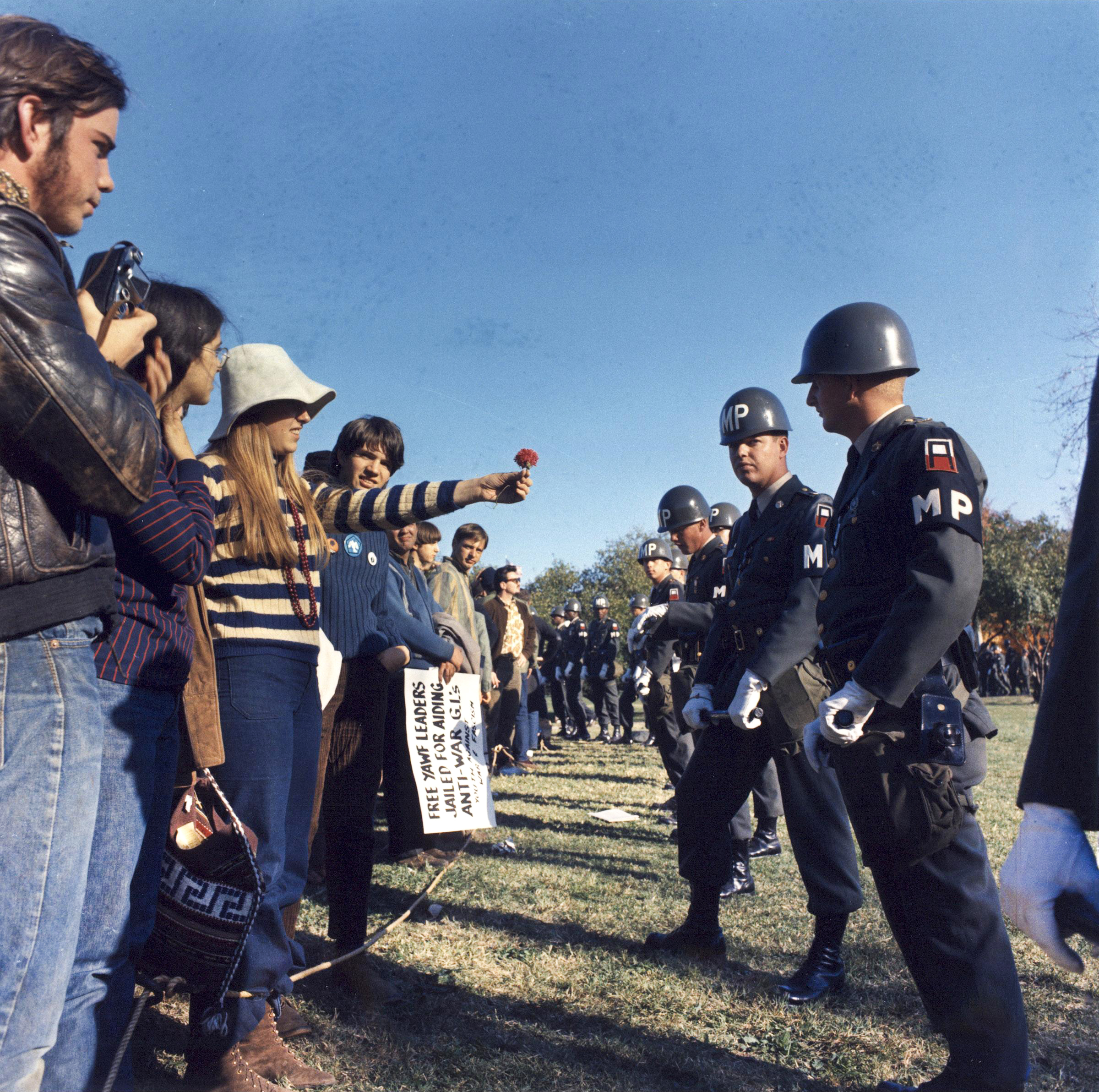 A Female demonstrator offers a flower to military police on guard at the Pentagon during an anti-Vietnam demonstration. Arlington, Virginia, USA. Oct 21, 1967. In the public domain. Author: S.Sgt. Albert R. Simpson.
A Female demonstrator offers a flower to military police on guard at the Pentagon during an anti-Vietnam demonstration. Arlington, Virginia, USA. Oct 21, 1967. In the public domain. Author: S.Sgt. Albert R. Simpson.
The Tragic Triumph of the Reagan Counter-Revolution
Against The Spirit of the Sixties, Now Counterbalanced by
the Rekindling of Candles in the Wind
by Stefan Schindler
The 1960s were a time of hope in America and the world. A time of questioning and protest. A renaissance of The Renaissance. The blossoming of a counter-culture committed to peace, freedom, and creative expression.
The Spirit of The Sixties carried over into the 1970s. America and the world saw the continuation and growth of the civil rights movement, the anti-war movement, the anti-nuclear movement, the environmental movement; and, of course, the feminist protest against sexism, perhaps best captured in the bumper sticker: “Women who seek to be equal to men lack ambition.”
Alas, Robert Kennedy and Martin Luther King were assassinated, as were the leaders of the Black Panthers and the American Indian Movement.
Richard Nixon was elected president twice; then Gerald Ford pardoned him for crimes against humanity.
Jimmy Carter was convinced by his national security adviser to start a covert war against the newly elected social democratic government of Afghanistan, which led to a Russian counter-intervention, which led to America’s creating, funding, and arming of Al Qaeda.
The liberal wing of the Democratic Party saw citizen activism as a “crisis of democracy.” Ronald Reagan applauded American-financed terrorists as “freedom fighters,” and launched the Bush-whacking of FDR’s socialist inspired “New Deal” for the American people.
Bush The First continued Reagan’s attack on America’s middle class and poor, as well as continuing Reagan’s wars abroad, saying, after America shot down an Iranian passenger jet, killing 290 civilians, including 66 children: “I will never apologize for America, I don’t care what the facts are.”
Newt Gingrich, in one of history’s greatest ironies, was elected Speaker of the House, successfully championing lies, insults, and divisive sophistry as the road to power during the failed presidency of Bill Clinton, whose Secretary of State, Madeline Albright, said that half a million dead Iraqi children from American bombings and sanctions was “a small price to pay” for freedom, although Iraq was in fact no threat to America’s national security, and Saddam Hussein had long been Ronald Reagan’s favorite dictator.
The Cheney-Bush administration lie-launched America’s Second Vietnam War, this time in the Middle East, convincing Congress to pass the least patriotic legislation in American history, called “The USA Patriot Acts.”
Obama wasted eight years compromising, betraying his base, and succumbing to a cowardice of conscience that made possible the tragic triumph of a new Trumpeting of racism, sexism, militarism, economic apartheid, and fanatical pseudo-patriotism.
Recalling Jeremiah’s warning that “Ye shall reap the whirlwind,” I’m reminded of another bumper sticker: “God is coming; and, boy, is She mad.”



